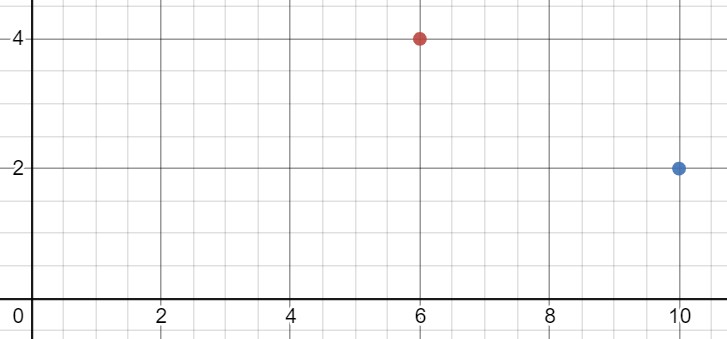How Your Perspective Can Hold You Back.
In physics there is an elementary concept called Absolute vs Relative measurement. The gist of it is that Absolute measurement refers to the actual value of an object, for example, there are three apples, in this case we are measuring an object to itself. A Relative measurement means we draw a comparison between two different objects, ie. we are 3 feet apart, with both you and I being compared to get a value. The most relatable example is when we compare ourselves to other people, in order to gauge our success, status or value we almost always measure ourselves relative to someone else. Hopefully you have been told from a young age that this way of thinking is wrong, by doing so we establish a criteria we could never fulfill and risk living our lives never measuring up. But how is it that we do this so easily? It seems that they are them and we are us, completely different but comparatively similar.
Your brain is hardwired to evaluate from a relative basis, floundering around in an ether of individuals tied down to our unique, singular perspective. There is a usefulness in comparing yourself to others as it can inform your perspective but be careful not to define yourself based on others. By knowing the framework in which your brain operates, you can be better equipped to achieve true growth as a person.
Let me explain a little better.

Figure 1 shows two points in a plane without any reference markings. These points can represent anything from two people, a person and a goal they want to achieve or you and the perspective you currently have. There is no way of knowing where these points are in the grand scheme of things, the only thing we can do is take a relative measurement between them. In order to obtain some kind of information, I can observe that the red dot is up and to the left from the blue, so for an internal context there is value in a relative measurement. But if I were to ask you which point is better, what would you respond? Unless you applied your own evaluation structure there is no solution, you can’t tell what direction is better or what scale is being used, so any external context is impractical. When you go to apply this analogy to life things get even more complicated, you could factor in that these points are continuously moving in space, just as you are constantly changing and progressing in some direction. This means that from the red dot’s perspective it could always remain the same if it stays with the blue dot, it would never know if it had deviated from its original course.
The Cartesian Coordinate system was invented by René Descartes, its used to plot different points in a 2D or 3D space relative to an origin at 0. Figure 2 shows both dots on a 2D cartesian coordinate system, this time with the grid lines activated and an origin. You can clearly see the locations of the dots and should either of them move, you would be able to know exactly where it is because there is now an absolute reference frame.

Since your brain naturally thinks in terms of Figure 1, it makes it difficult to track and evaluate yourself in life. As we grow and get older we start to run a higher risk of travelling in a circles because there are so many relative aspects to life we measure from. The biggest and sometimes most challenging question to answer is “what have you done with your life?”. In some cases we have spent so much time drawing relative information from things or other people, that we lose sight of the path we originally set on. Bringing this concept down to a personal level still applies, each time we wake up we observe the world around us differently relative to how we are feeling.
While thinking relatively can hinder our growth and seem to work against us, it is also the reason that you have unlimited potential. A relative mentality affords you the scope to see things in different ways and be able to pursue new goals and opportunities. In parallel, mistakes you make in your past are not able to define you, no matter how engrained or big they might seem.
When deciding what direction you want to go in life or what interest you would like to pursue, it can be beneficial to compare to someone or something that has already achieved it. However, without establishing an external reference frame that’s independent of you and your goal, there is no way of knowing if you’ve left the course you originally set out on.
I hope you enjoyed this article! Subscribe so I can let you know when there are more posts! We should always have the mission to make each day better than the last. Being aware of what aspects in life are relative or absolute can help you process the world around you, and give a clearer understanding and direction. Id encourage you to take the time to figure out your absolute metrics, then combine that with what you compare to so you can achieve all that you can.
Thanks!

One Comment
Seth S
You make some great points. My initial thoughts to stray away from things like social media for the sole reason of negative comparison (body image, possessions etc.) , have been altered to reconsider my goals and strive to compare myself with people who have already achieved them. The result would be a healthy point of reference. Thanks Louis!